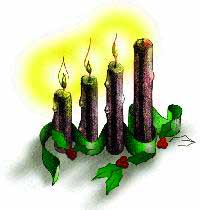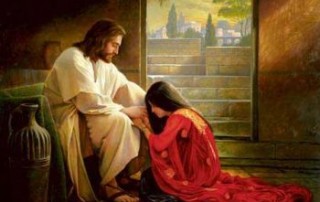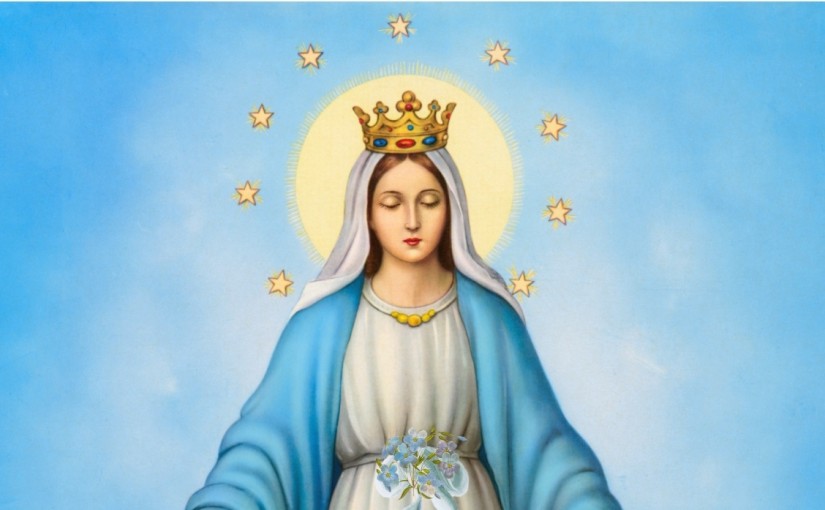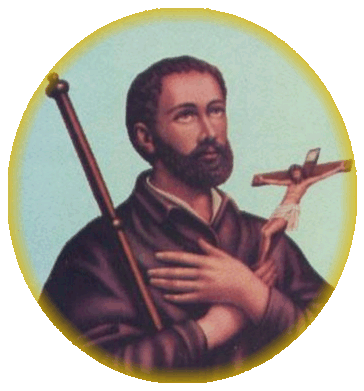Today’s readings and liturgy call us to rejoice. That’s the reason for the rose-colored vestments and the more joyful tone of today’s readings. This is called Gaudete Sunday: gaudete being Latin for “rejoice,” the first word of today’s introit or proper entrance antiphon which says: “Rejoice in the Lord always; again I say, rejoice. Indeed the Lord is near.” The Church takes that antiphon from the words of the second reading today.
And there is reason to rejoice. The prophet Zephaniah tells the people Israel that, even though their sins had displeased the LORD to the point that he gave them over to the hands of their enemies, he has relented in his judgment against them and will deliver them from their misfortune. Their deliverance is so complete that the LORD will even rejoice over them with gladness!
In his letter to the Philippians, Saint Paul calls us to rejoice too. The reason he calls for rejoicing is that “The Lord is near.” He was referring to Jesus’ return in glory, of course, which they thought would be relatively soon in those days. While he never saw that in his lifetime, we may. Or perhaps our children will, or their children. One thing we definitely know is that the Lord is near. He does not abandon us in our anxieties but instead listens as we pray to him and make our petitions with thanksgiving. Our Lord is as near to us as our next quiet moment, our next embrace of someone we love, our next act of kindness. Rejoice indeed!
Maybe this call to rejoice rings a little hollow today, based on the continued presence of terror and mass-shootings and civil unrest in our society. The world can be a very bleak place, and rejoicing can be the furthest thing from our hearts and minds. But our faith tells us we can rejoice anyway. The Psalmist sings today about the kind of hope our world needs right now:
God indeed is my savior;
I am confident and unafraid.
My strength and my courage is the LORD,
and he has been my savior.
And it is up to us to bring this kind of hope to a world that has almost become accustomed to horror and shock and terror and sadness. The world may almost prefer to sit in this kind of darkness, but not people of faith. People of faith instead light a candle of hope and dance in the light of Christ! People of faith can rejoice because even in times of sadness and despair, the presence of our God is palpable, realized in stories of heroism and seen in acts of charity and grace in moments just like this.
And so today we rejoice because our Lord is near. We light that third, rose-colored candle on our Advent wreath and we see there’s not many candles left until the feast of the reason for our rejoicing. We look forward to celebrating the Incarnation, perhaps the greatest and best of the mysteries of faith. That God himself, who is higher than the heavens and greater than all the stars of the universe, would humble himself to be born among us, robing himself with our frail flesh, in order to save us from our sins and make his home among us for all eternity – that is a mystery so great it cannot fail to cause us to rejoice! Indeed that very presence of God gives hope even in the worst tragedy – THE LORD IS NEAR!
The people who came to Saint John the Baptist in today’s Gospel knew of the nearness of their salvation, because John preached it with intensity. So today they come to him and ask them what they should do – what’s the next step? And he tells them. They need to repent, to reform their lives, and keep watch for the One who is mightier still than he is. The coming Savior will baptize with the Holy Spirit and with fire, and the only way to be prepared for that is to turn away from their practices of darkness and live with integrity.
It’s a message that is intended for us too. Because we also could clean up our act a bit. We too have need to repent. Maybe we have big sins or maybe little ones; maybe we have patterns of addiction that we have been struggling with – we all fall short of the glory God intends for us. If you’re not Jesus or Mary, you have sin in your life and from that sin, Advent calls us to repent.
Because sin is what keeps us from rejoicing, brothers and sisters in Christ. Sin keeps us mired in the darkness. Sin breaks the relationship with God and others that keeps us from seeing that the Lord is near. But we rejoice because our God came to us to give us the antidote to that. He came to pour out on us his great mercy. That’s good news, and that’s why we celebrate – yes, celebrate! – the sacrament of Penance.
In order to help you to prepare so that you can rejoice, both Father Dan and I will be hearing confessions next Saturday at 3:45pm. If that time does not work for your schedule, our bulletin has a list of confessions at parishes in our area. I want you to go to confession before Christmas because I want you to be able to rejoice. If you have not been to Confession in years and maybe are a little ashamed or scared or don’t know how to do it, then rejoice and go anyway. The priest will welcome you back warmly and help you to make a good confession. That’s what we do; that’s why we are priests, and it’s our privilege to help you experience the Lord’s mercy and kindness so that you can once again rejoice. So if you haven’t been to confession yet this Advent, I want you to go this week. You’ll rejoice and be glad when you do.
These final days of Advent call us to prepare more intensely for the Lord’s birth. They call us to clamor for his Incarnation, waiting with hope and expectation in a dark and scary world. These days call us to be people of hope, courageously rejoicing that the Lord is near! Come, Lord Jesus! Come quickly and do not delay!







You must be logged in to post a comment.